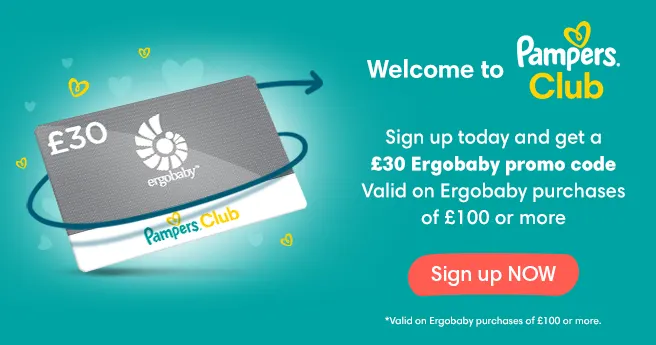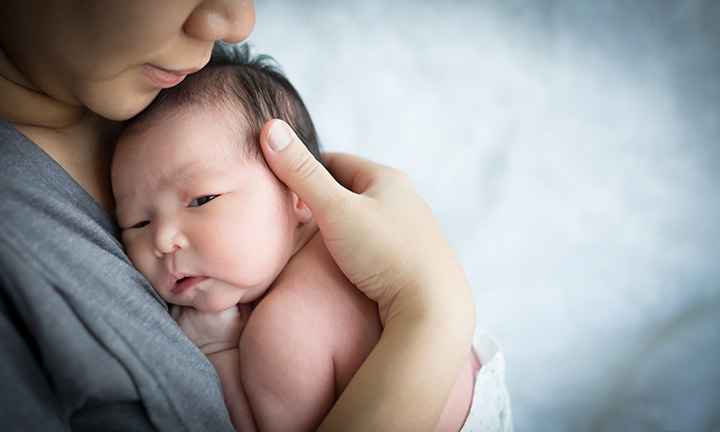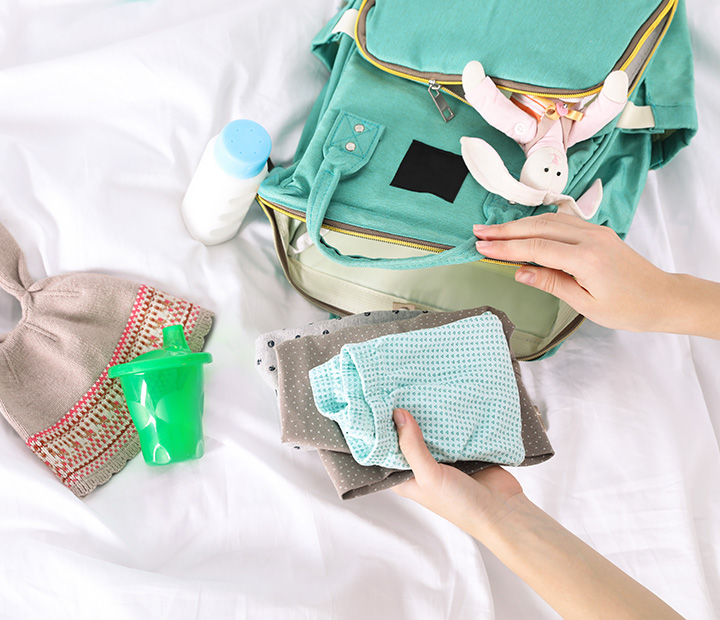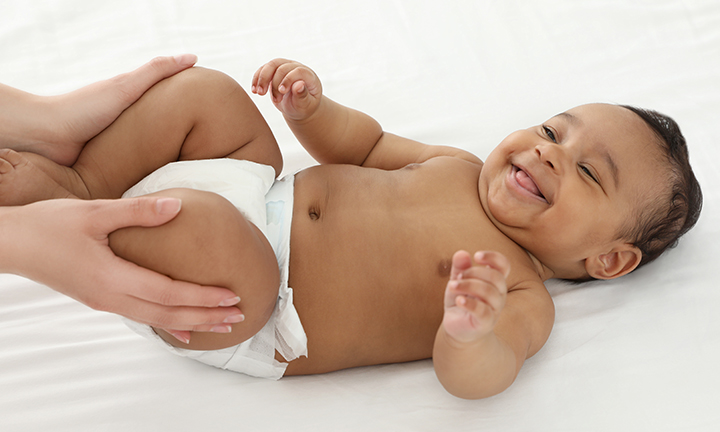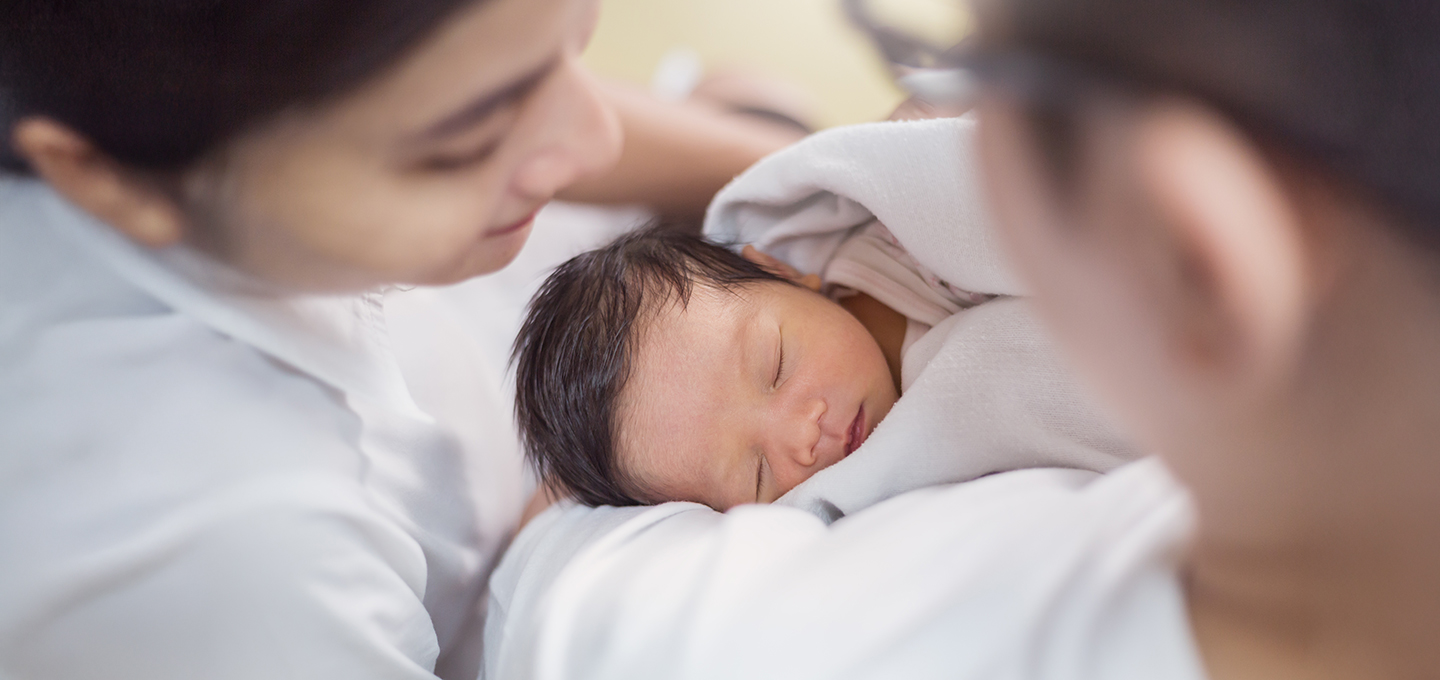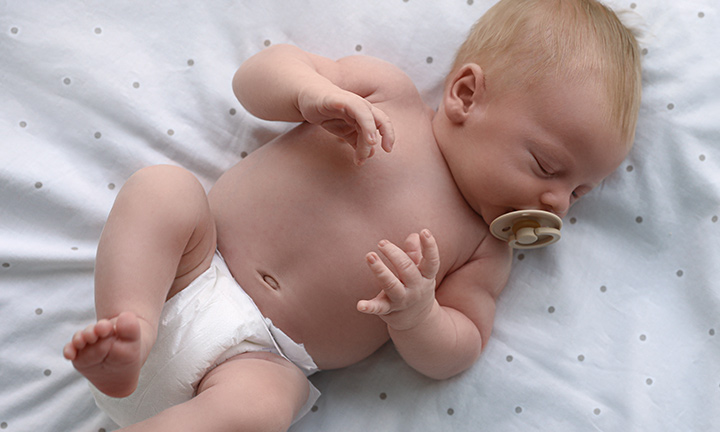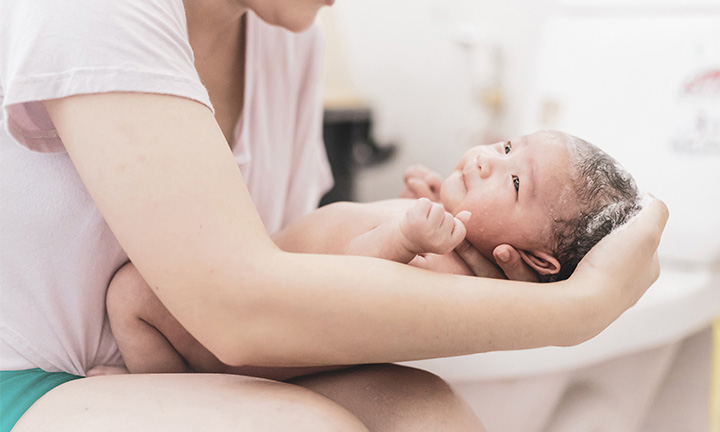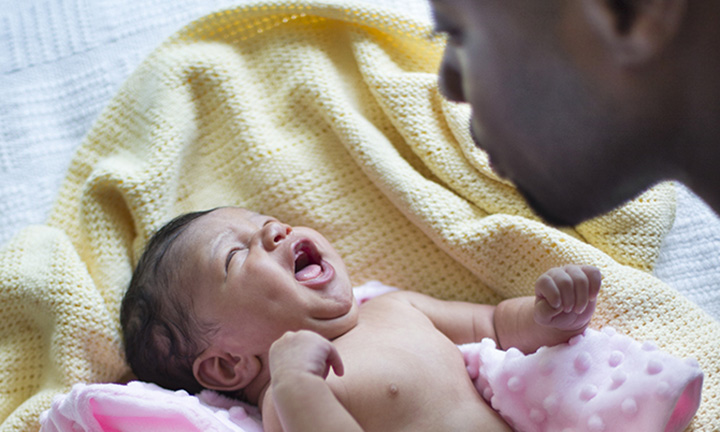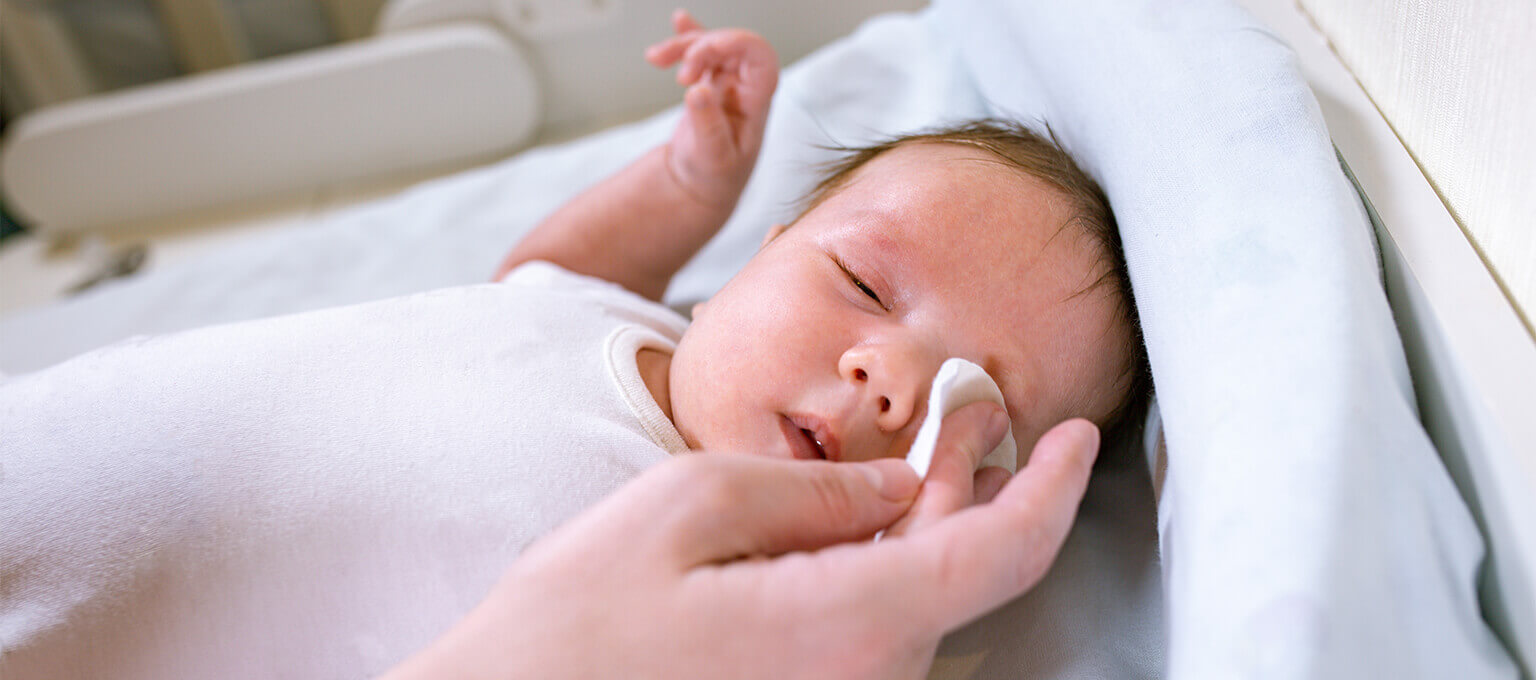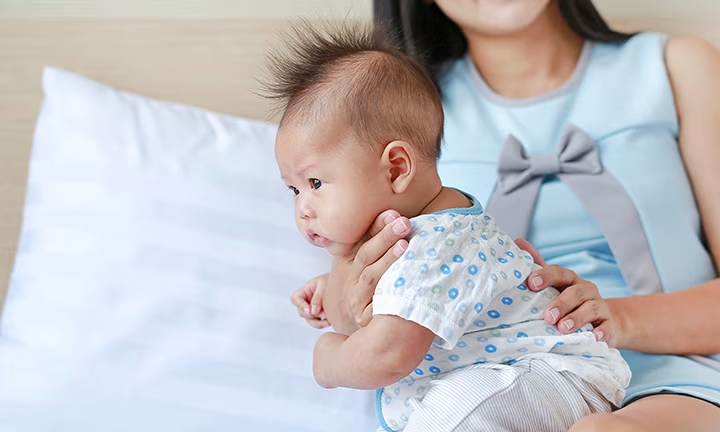
Baby Hiccups: Why They Happen & How to Help Your Little One
Hiccups in babies are not unusual for your little one to experience from time to time. Most little ones do! Baby hiccups are usually harmless and tend to resolve on their own after a few minutes. But if you’re wondering what causes hiccups in babies or how to get rid of them, read on to learn more about why they happen and what you can do to help.
What Causes Hiccups in Newborns and Babies?
Baby hiccups are a common occurrence, and you may have even noticed your little one having quick, rhythmic jerks while they were still in the womb; it means they were hiccupping. In most cases, hiccups are nothing to worry about and tend to settle on their own.
Hiccups happen when your little one’s diaphragm – the dome-shaped muscle beneath the lungs that helps with breathing – suddenly and involuntarily contracts. This quick movement causes a rush of air into the lungs, which makes the vocal cords close suddenly, creating the familiar ‘hic’ sound.
If your baby hiccups a lot, you might wonder whether there’s an underlying cause. In some cases, hiccups in babies may be linked to reflux – when stomach contents come back up into the food pipe, which may trigger the diaphragm to contract. Reflux is common in babies and usually improves as their digestive system matures.
Newborn and Baby Hiccups After Feeding
If your little one experiences hiccups frequently during or just after feeding, or if they seem to hiccup a lot after every feed, it may be linked to reflux – when milk travels back up into the food pipe. Reflux is common in babies, particularly after 2 months of age and usually improves by the time they reach their first birthday.
Other possible signs of reflux may include:
If you suspect reflux could be contributing to your baby’s hiccups, try burping your baby more frequently throughout each feed. Keeping your little one upright during feeds may also help. If you’re breastfeeding, you might find that adjusting your feeding position may make a difference – consider trying different breastfeeding positions to find the most comfortable one for your little one.
How Long Do Newborn Hiccups Last?
There isn’t a fixed duration for how long hiccups should last, but your newborn baby’s hiccups should typically resolve on their own after only a few minutes.
If your little one seems content and the hiccups do not disrupt feeding or sleep, there is generally no need for concern. However, if your baby hiccups a lot and you notice signs of discomfort or reflux, it may be worth consulting your little one’s GP for further advice.
As your baby grows and their digestive system matures, these episodes tend to become less frequent.
How to Get Rid of Baby and Newborn Hiccups
Are you wondering how to get rid of your baby’s hiccups? In most cases, hiccups only last for a few minutes and tend to resolve on their own without the need for intervention.
There isn’t a magic cure to stop baby hiccups immediately but keeping your little one relaxed and comfortable may help. Hiccups in babies may sometimes be linked to over-excitement or mild stress, so gentle playtime, rocking or ensuring your baby has a clean nappy might help them settle.
Like hiccups, reflux in babies is usually not a cause for concern, but if you’re wondering, ‘Why does my baby get hiccups after feeding?’, or if your little one’s symptoms are severe, worsening or persist beyond a couple of weeks, speak to your health visitor or GP for advice.
Best Positions to Get Rid of Newborn and Baby Hiccups
While there isn’t a guaranteed way to stop hiccups in babies immediately, you can try keeping them in a more upright position. This may help them swallow less air, reducing hiccups after feeding.
Holding your baby upright after feeds may also help, especially if reflux is a factor. Also, if you’re breastfeeding, adjusting your breastfeeding position may improve latching and reduce air intake.
Regular burping during and after feeds may also prevent excess air from causing baby hiccups a lot.
How to Help Prevent Hiccups in Your Newborn and Baby
If your baby tends to get hiccups during feeding, try ensuring they are calm and not overly hungry before a feed, as excitement or stress may contribute to their hiccups. In some cases, this might help reduce your baby’s hiccups while feeding. For more guidance, check out our article on baby feeding schedules.
If reflux could be a factor, offering smaller, more frequent feeds may help prevent both reflux and hiccups in babies caused by an overly full tummy.
Your health visitor or GP can offer further advice on preventing hiccups and ensuring your baby is feeding comfortably.
When to Contact Your GP
Newborn baby hiccups are usually harmless and go away on their own. However, you should contact your GP or health visitor if:
If you’re worried about your baby’s hiccups or overall health, your GP or health visitor can provide reassurance and guidance.
FAQS AT A GLANCE
There is no instant way to stop baby hiccups, but you could try feeding your baby upright and burping them regularly during feeds or trying different breastfeeding positions. However, hiccups generally go away on their own.
The Bottom Line
Your newborn baby will likely experience hiccups from time to time, and while it might catch you off guard at first, it’s usually nothing to worry about. If you want to help prevent baby hiccups, try keeping feeds calm and unhurried, ensuring your baby is relaxed before and during feeding. But even if hiccups do happen, rest assured, they will usually pass on their own within a few minutes.
Parenting is full of little surprises and every moment – hiccups included – becomes part of the journey.For more parenting tips and to be rewarded for each Pampers purchase you make, check out the Pampers Club App!
How We Wrote This Article The information in this article is based on expert advice found in trusted medical and government sources, such as the National Health Service (NHS). You can find a full list of sources used for this article below. The content on this page should not replace professional medical advice. Always consult medical professionals for full diagnosis and treatment.
Read more about Newborn Baby
Related Articles
Join Pampers Club and get:

